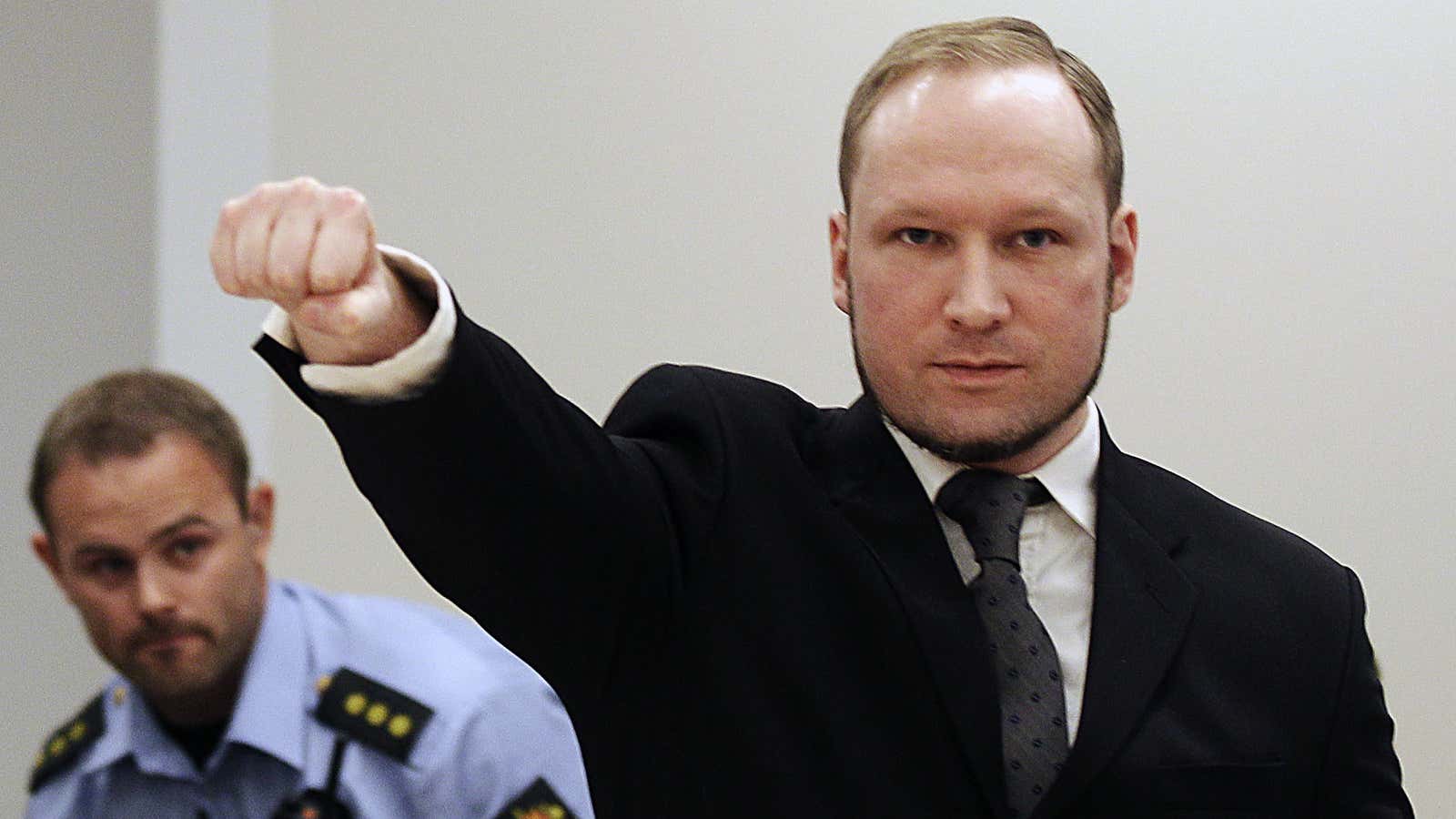Anders Breivik is serving 21 years in prison for killing 77 people in a xenophobia-fueled rampage in Norway in 2011; he lives in a cushy, three-room prison cell with an exercise space where he is allowed to work toward a degree from the University of Oslo. But he thinks he is being treated unfairly, and has sued the state for violating his human rights.
A court ruled Monday it would hear Breivik’s case in the prison in which he is held in March. Breivik, whose victims included more than 50 teenagers, says that keeping him in solitary confinement amounts to torture. Norway’s parliamentary ombudsman acknowledged in a November report that isolation risks turning into “inhumane treatment.” In September, Breivik threatened a hunger strike over his alleged mistreatment.
During his 2012 trial, Breivik showed no remorse for his actions, and was sentenced to the maximum sentence Norway’s law allows. A militant nationalist opposed to Norway’s multiculturalist policies, he was convicted for killing eight people by setting off a bomb in the government district, and 69 on the island of Utoya, the location of a left-wing youth camp. His sentence could be extended if he is seen as a danger to society.
In a 2012 article for The Atlantic, Max Fisher explains why Norway treats its criminals relatively gently, according to the philosophy of restorative justice:
The pleasant-sounding experience of being in Norwegian prison isn’t some sign of Scandinavian weakness or naïveté; it’s precisely the point. A comfortable cell, clean and relaxing environment, and nice daily activities such as cooking classes are all meant to prepare the criminal for potentially difficult or painful internal reformation. Incarceration, in this thinking, is the treatment for whatever social or psychological disease led them to transgress. The criminals are not primarily wrongdoers to be punished, but broken people to be fixed.
